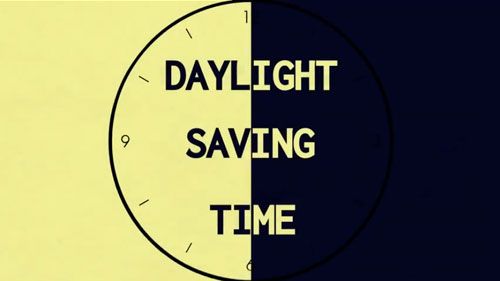Changing your clocks every six months could be a thing of the past.
On Mar. 15 the U.S. Senate passed legislation that would make daylight saving time permanent starting in 2023. The vote passed 100-0.
The bill, called the Sunshine Protection Act, would end the twice-annual changing of clocks and would start in Nov. 2023. All states except for Arizona and Hawaii will participate in changing the clocks.

The bill must pass The House of Representatives before it can go to President Biden to sign.
Senator Marco Rubio, one of the bill’s sponsors, mentioned he got input from airlines and broadcasters.
The supporters of the bill say it enables children to play outdoors later and reduces seasonal depression. While the people who oppose the bill mention that it would mess up people’s and pets’ sleep schedules.
This is not the first time Congress tried to get rid of standard time. In 1972, when America was facing an energy crisis, Congress passed a law to make daylight saving time permanent year-round. It lasted two years.
Anthony Contipodero is a history and political science adjunct professor here at Cabrini and works at Chichester School District.
“Originally, Daylight Savings Time was implemented to conserve energy, assist farmers and take full advantage of the sunlight. Congress passed the Uniform Time Act in 1966, and it has been standardized since then. Is it worth it? Debatable,” Contipodero said.
“Is the amount of energy saved worth the hassle of time changing twice a year? With our society being so energy conscious today, some would say that it is not worth the time changes and sleep deprivation suffered from this,” Contipodero said. ”People enjoy routines, and daylight savings upsets rhythm. Personally, I believe that Congress has other pressing issues now; however, if I had a vote in Congress I would vote ‘yes’ to the Sunshine Protection Act, making daylight savings time permanent.”
Contipodero mentioned it was impressive to get all 100 senators to agree on a topic.
“It’s amazing to get 100 senators to agree on anything,” Dr. James Hedtke, history and political science professor, said.

Photo by Cabrini University
“The bill has pros and cons,” Hedtke said. “The pros are to take away the annoyance of changing your clock, have health benefits and help restaurants and retail stores. The cons are dark winter mornings and our internal clocks are better with standard time rather than daylight savings time.”
Hedtke mentioned that one of the biggest groups against the bill was the national sleep association.
“I love daylight savings time,” Hedtke said. “I feel like I am a different person in daylight savings and so are most of my family.”
Hedtke suffers from seasonal affective disorder where he needs light.
“I think it is good we are getting rid of daylight saving,” Hunter Cooper, sophomore education major, said. “It is hard to adjust to whether or not we lose an hour or gain an hour especially when I have to get up early.”
Cooper who takes naps daily, mentioned that his sleep schedule has been off since the change in time.
“It throws my sense of time off for a couple weeks, so I rather not have to do that again,” Michael Taylor, sophomore accounting major, said. “I just want one time and not have to adjust every six months.”



